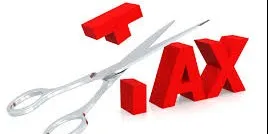

8 Simple Tips for Salaried Employees to Gain Income Tax Exemptions
Reduce Income Tax by Investment...

Overview
For many people dealing with year-end income tax deductions is a task of great hassle bustle. It is a task of great challenge for most of the people to submit various rent receipt and insurance paper at the end of the financial year. But an individual can easily save themselves from the unnecessary financial stress by making best use of all the instruments of tax-saving.
A proper understanding of slab is very crucial in order to understand that how much you can actually save on taxes. The tax payers in income tax slab are categorized on basis of annual income of an individual. So, if you really want to save on taxes then you can use different types of saving instruments. In order to help you know more about this here we have discussed briefly the ways to save on taxes.
Investments
Investments are one of the most popular financial instruments where one invests today and can reap benefits later. Apart from this, these investments also provide tax benefits. Some of the common investment options are-
Mutual Funds- Mutual Funds are Equity Linked saving schemes which can be used to avail tax saving under section 80C of Income Tax Act. These schemes have same lock in period similar as PPF’s and Fixed deposits. One of the main advantages of Mutual Fund is that it provides an option for your money to multiply and grow.
Investments in ULIP- ULIP plans are market linked plan that provides the dual benefits protection cum investment in a single plan. The invested amount under ULIP plans is also eligible income tax exemption for plus it also provides an opportunity to help your money grow.
Insurance
Purchasing an insurance policy has numerous benefits but one of its complementary benefits is that it provides tax benefit. The two most popular investment methods in insurance are life insurance and health insurance.
Life Insurance- life insurance policy secures the financial future of an individual along with the benefit of tax exemption. In life insurance policy the premium paid by the life insured are liable of tax exemption under section 80C of Income Tax Act.
Heath Insurance- With the burgeoning cost of medical care and treatment, buying a health insurance policy for the safety of an individual and their family is very important. Health insurance policies provide full financial coverage in case of any critical illness. One can save up to Rs 15,000 to Rs 20,000 taxes on the premiums paid for your health insurance.
Other Tax Saving Instruments
Tax Saving Fixed Deposit- Offered by various banks, fixed deposit is also used as a great instruments income tax exemption.
Post Office Time Deposit- Post office time deposit is similar as fixed deposit and it also provide tax benefit to the individual.
National Saving Certificates- One can avail NSC from the post office. National Saving Certificates has a lock in period of 5 years and 10 years and the invested amount in NSC’s are valid for tax exemption.
Provident Funds- Provident Funds or Pension Fund is created with a goal of long term return. The amount deposited in provident fund is allowed for tax deduction under section 80C of Income Tax Act.
One can save bundles of their hard earned money and achieve their financial goal by choosing the most beneficial tax saving plan.




.jpg?mode=crop&crop=faces&ar=1%3A1&format=auto&w=1920&q=75)

